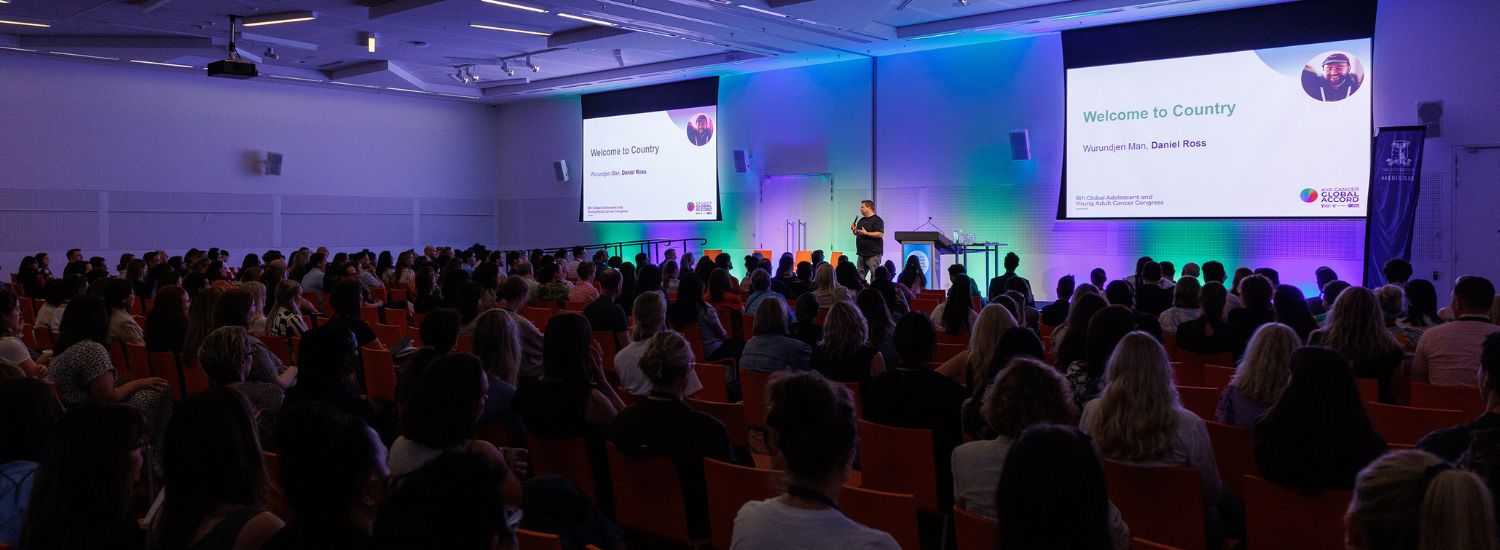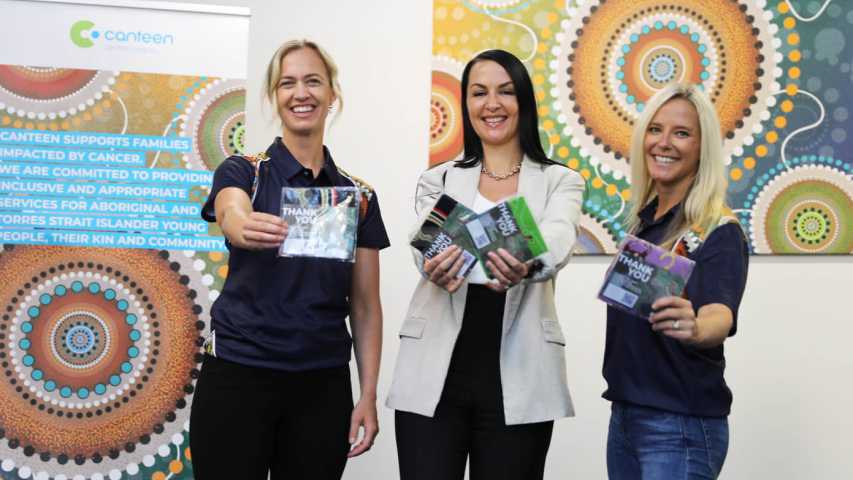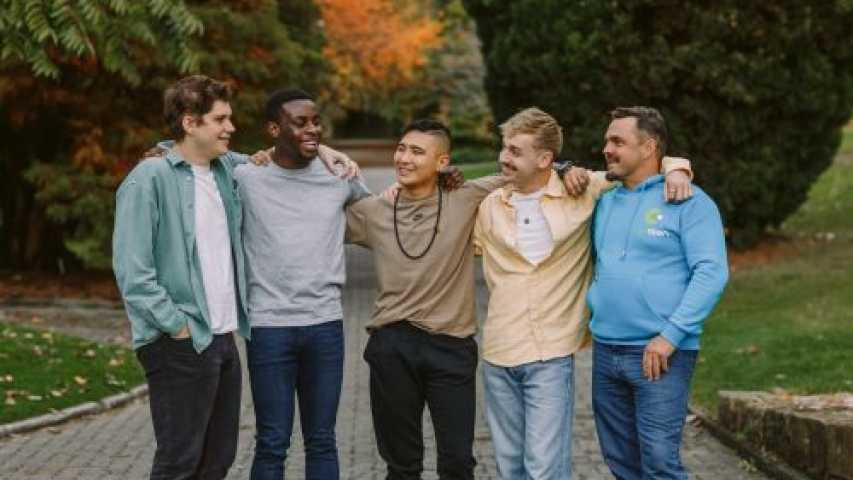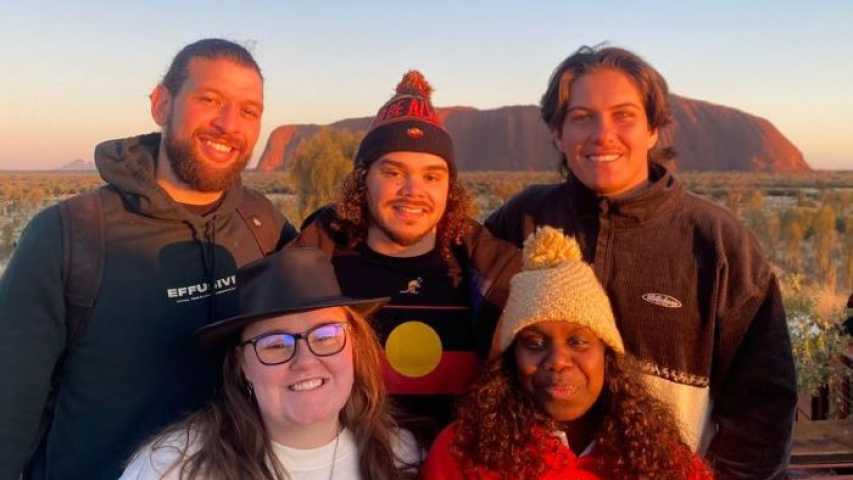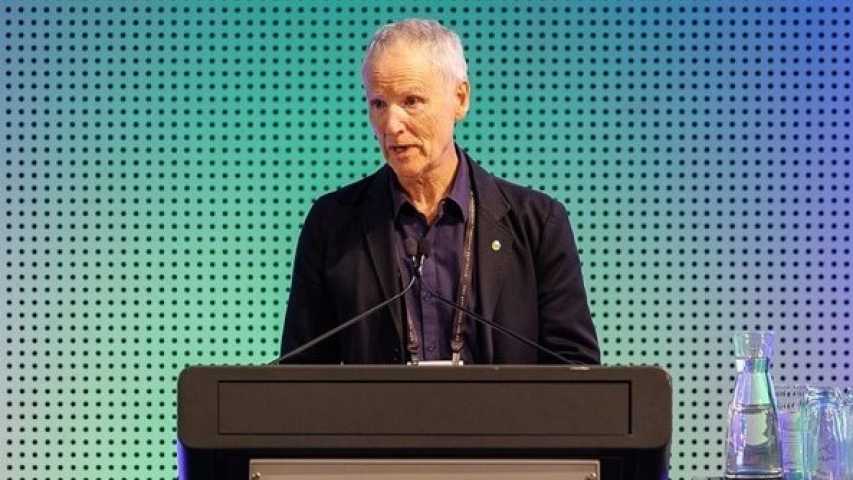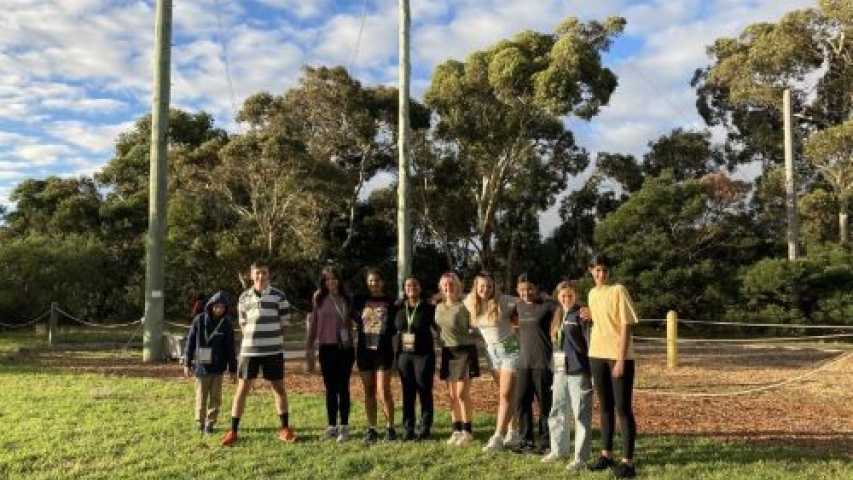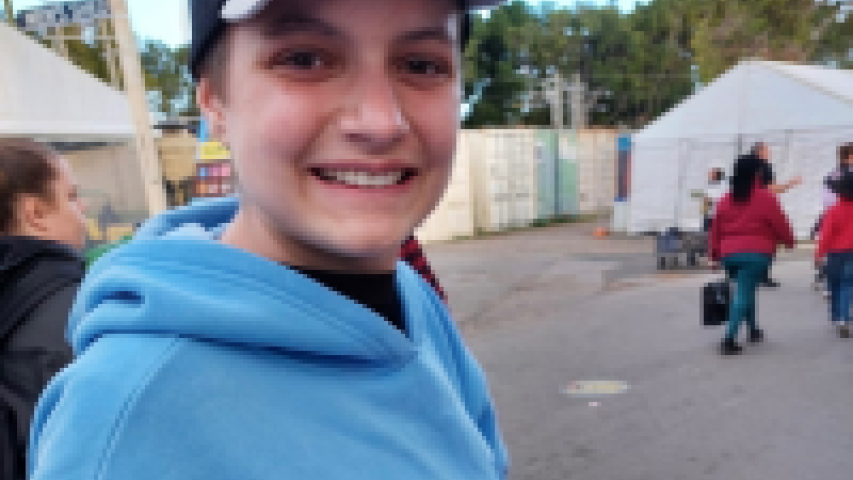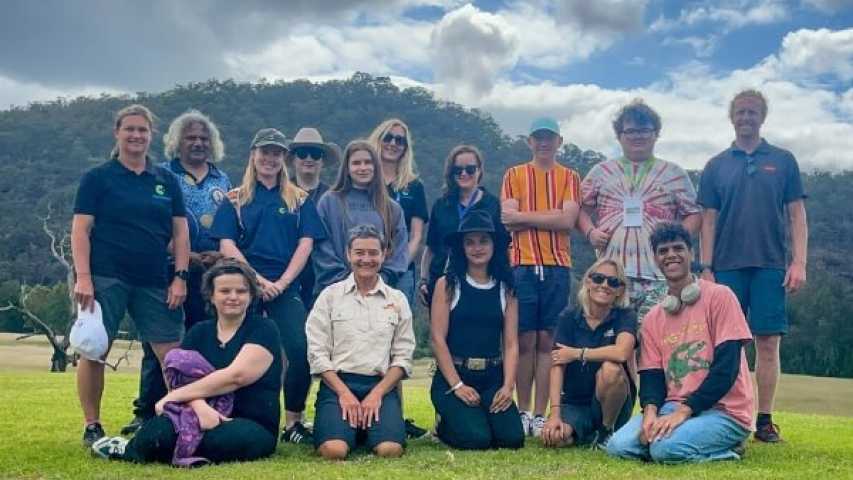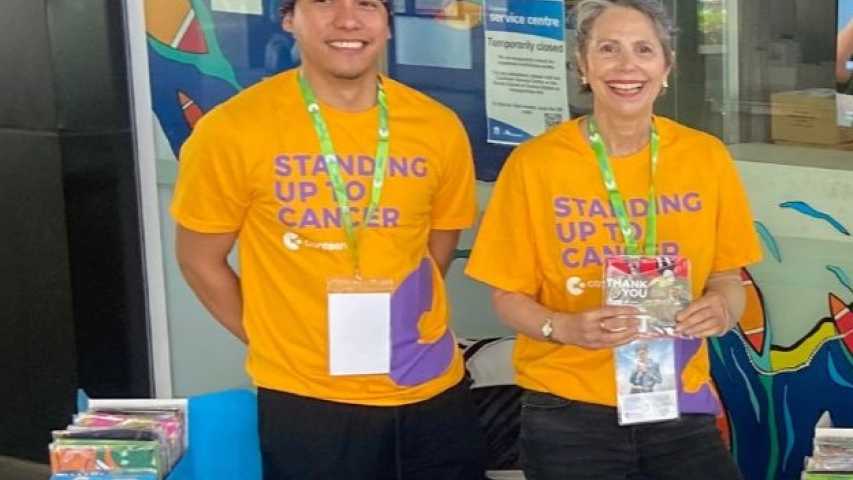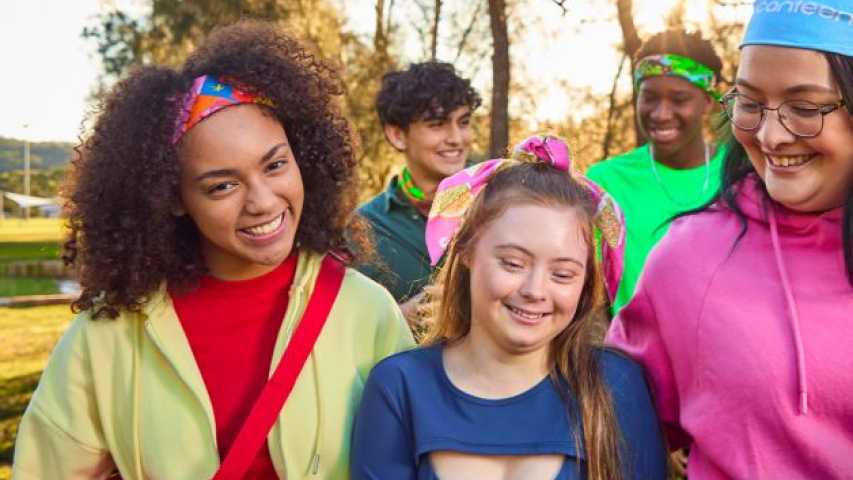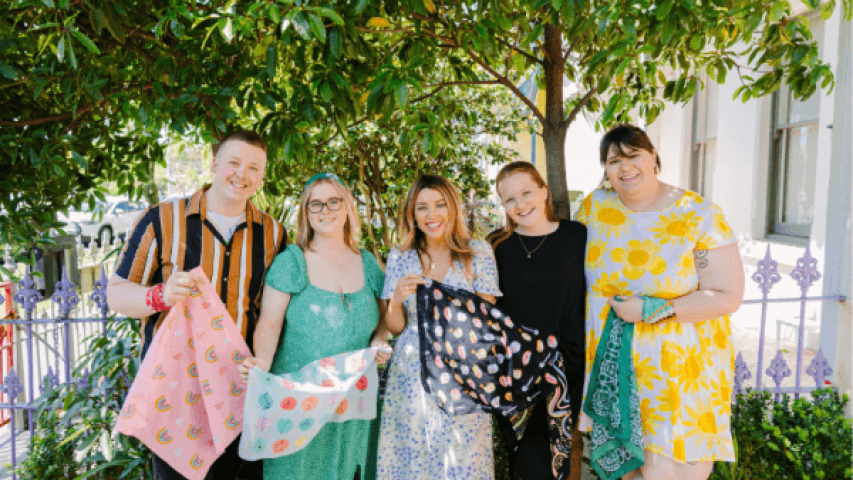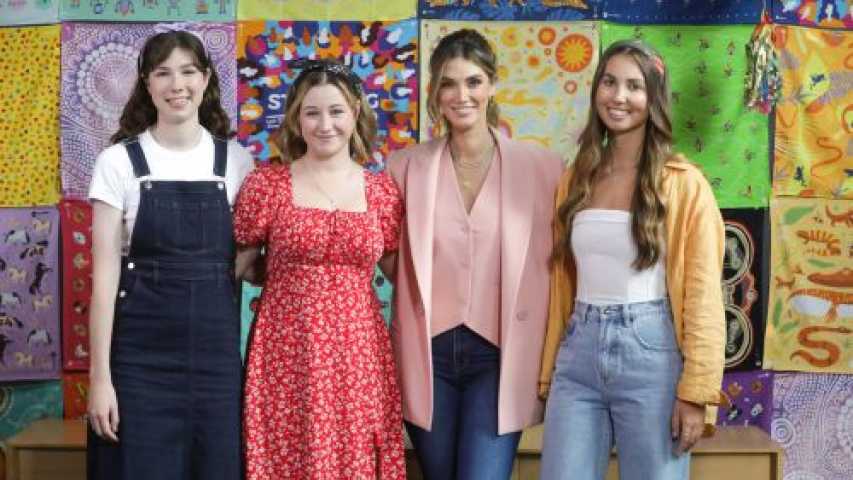In December 2024, Canteen Australia hosted over 470 delegates from 39 countries for the 6th Global AYA Cancer Congress at the Melbourne Exhibition and Convention Centre. This Congress, made possible through the AYA Global Cancer Accord between Canteen Australia, the UK’s Teenage Cancer Trust, and Teen Cancer America, is the only global event with a dedicated focus on the unique medical and psychosocial needs of adolescents and young adults (AYAs) with cancer.
Focused on the themes of Ethics, Equity, and Emerging Ideas, the Congress program spanned four days of workshops, exhibitions, and presentations. Delegates were invited to consider how we might increase equitable access to AYA cancer care, the ethical aspects of cancer treatment and practice, and the role of innovations such as artificial intelligence.
Keynote speaker Professor Richard Scolyer AO, the first person to receive pre-surgery immunotherapy and a personalised anti-cancer vaccine for brain cancer, spoke about the role of personalised medicine in AYA cancer treatment—a critical issue given that around 50% of diagnosed young people face rare or harder to treat cancers. Minister for Health and Aged Care, The Honourable Mark Butler MP underscored the importance of specialised cancer care for AYAs, announcing that the government would provide Canteen with a total of $26 million in support for Australia’s Youth Cancer Services over the next four years.
Ethics, Equity, and Emerging Ideas in Action
To ensure the 2024 Congress included delegates from as many countries as possible, around 20 clinicians from Low-and-Middle-Income countries (LMICs) were sponsored to attend. This enabled the first delegates from Africa and the Pacific Islands to participate. LMIC delegates were invited to a dedicated networking breakfast, which prompted the creation of an ongoing LMIC clinician and research network, expected to continue beyond the Congress.
Delegates heard from international leaders such as Dr Gwenda Anga, who discussed AYA cancer care in Papua New Guinea, and Dr Zainab Mohamed, who presented on the challenges of cancer treatment in Sub-Saharan Africa. This focus on equity was complemented by presentations on the ethical and logistical complexities of cancer care in conflict zones, with contributions from Yuliya Nogovitsyna on AYA cancer care in Ukraine, and Professor Jeffrey Rosenfeld on his experiences working in Rwanda, East Timor, Papua New Guinea, and Iraq.
A symposia session on advocacy gave delegates the chance to learn from Youth Cancer Europe Co-founder and Executive Director Katie Rizvi about how her organisation is shaping the EU cancer research funding agenda, and from University of Sydney Medical School Adjunct Senior Lecturer Paul Grogan about his work influencing Australian policy makers. Carmen Monge, a young person with lived experience of cancer, also shared her story of travelling the world after receiving treatment in Costa Rica.
The role of artificial intelligence took centre stage during our Emerging Ideas plenary presentation, with contributions from Professor Stacy Carter on Australia’s new national policy roadmap, and from Dr Samir Patel on ensuring AI does not widen the gap in AYA cancer care.
Centering Young Voices
AYA patient-advocates with lived experiences of cancer played a crucial role in the 2024 Congress. These delegates provided meaningful involvement by serving in leadership roles, as chairs, as presenters, and as part of an AYA working group, ensuring AYA voices shaped the Congress narrative. Importantly, the Congress also included First Nations young people from around the world, who were able to spotlight health inequities across the healthcare system, including in cancer care.
The launch of a music video created by AYAs in collaboration with Australian singer-songwriter Luke Escombe was a Congress highlight. The video follows the experiences of “YAPS”, a Youth Advocate Puppet Survivor, representing the challenges of the patient journey in an innovative, accessible way.
Alongside these AYA-focused conversations, a memorable Communication Abstract session gave delegates tips on providing supportive, clear communication with AYAs during clinic sessions. Attendees were reminded of how important it is to communicate directly with AYAs, even when the conversation becomes difficult or awkward, while still including members of their support network where appropriate. Added to all these events, a symposium on Diverse Gender and Sexuality Care focused on AYA-informed approaches to ensuring equitable, gender-affirming care.
Global Reach and Collaboration
Bringing together over 470 delegates from 39 countries, the 6th Global AYA Cancer Congress achieved significant global reach. Congress delegates were pleased to see the visibility of their work increased through media coverage on Channel 9, Channel 10, and Sky News, amplifying the important messages of Ethics, Equity, and Emerging Ideas beyond the oncology community.
Of course, the Congress itself is only one moment in an ongoing effort to connect the global AYA cancer care community. Members of the AYA Cancer Global Accord are committed to improving AYA outcomes around the world through the creation of multidisciplinary networks, research collaborations, clinical trials initiatives, and the newly formed LMIC network, established during this Congress.
Closing Reflections
By bringing together cancer care professionals and AYAs with lived experience from around the world, the Global AYA Cancer Congress continues to be a catalyst for change. This event provides rare opportunities for delegates to create lasting partnerships across countries and cancer care sectors. It is an opportunity to reflect on the role of innovation in cancer care, which is transforming the way cancer is diagnosed and treated faster than ever before. Above all, this Congress continues to centre the voices of young people, and include their vital perspectives on shaping the future of AYA oncology.
On behalf of Canteen Australia, I would like to express my gratitude to the Melbourne Convention Bureau, the members of the AYA Cancer Global Accord, and all those who contributed to ensuring the 6th Global AYA Cancer Congress was a resounding success.
—Siona Hardy, Executive Director of Impact and Services, Canteen Australia
About the AYA Cancer Global Accord
In 2015, Canteen Australia, the UK’s Teenage Cancer Trust, and Teen Cancer America, formed the AYA Cancer Global Accord. AYAs with cancer have unique and complex medical and psychosocial needs, distinct from those of paediatric and older adult patients, and as such, require tailored, specialised AYA cancer care.
The aim of the Accord is to invest in and support a growing multidisciplinary workforce who are committed to improving the lives of AYAs diagnosed with cancer, worldwide. A key focus of this partnership is the Annual Global AYA Cancer Congress Series, hosted on a rotating basis by the foundational partner organisations.
Together, these organisations have created the first truly global congress in AYA cancer care, where speakers from across the globe gather to present sector-leading research on cancer care for young people, helping to improve treatment and care around the world. The Congress provides health and social care professionals a unique opportunity to network and share information about this specialist area of cancer care, and to learn from leading national and international specialists in their respective disciplines.
Learn more at globalayacancer.org
This article was originally published in Oncology News and The Oncology Network.
The Global Accord warmly thanks our sponsors and exhibitors:
- Bellberry Ltd
- The Leukemia & Lymphoma Society
- The University of Melbourne
- Pfizer Oncology
- Teen Cancer America
- MooGoo Skin Care
- Alexion
- The Willmob Family Trust
- Melbourne Convention Bureau
- Youth Cancer Service




